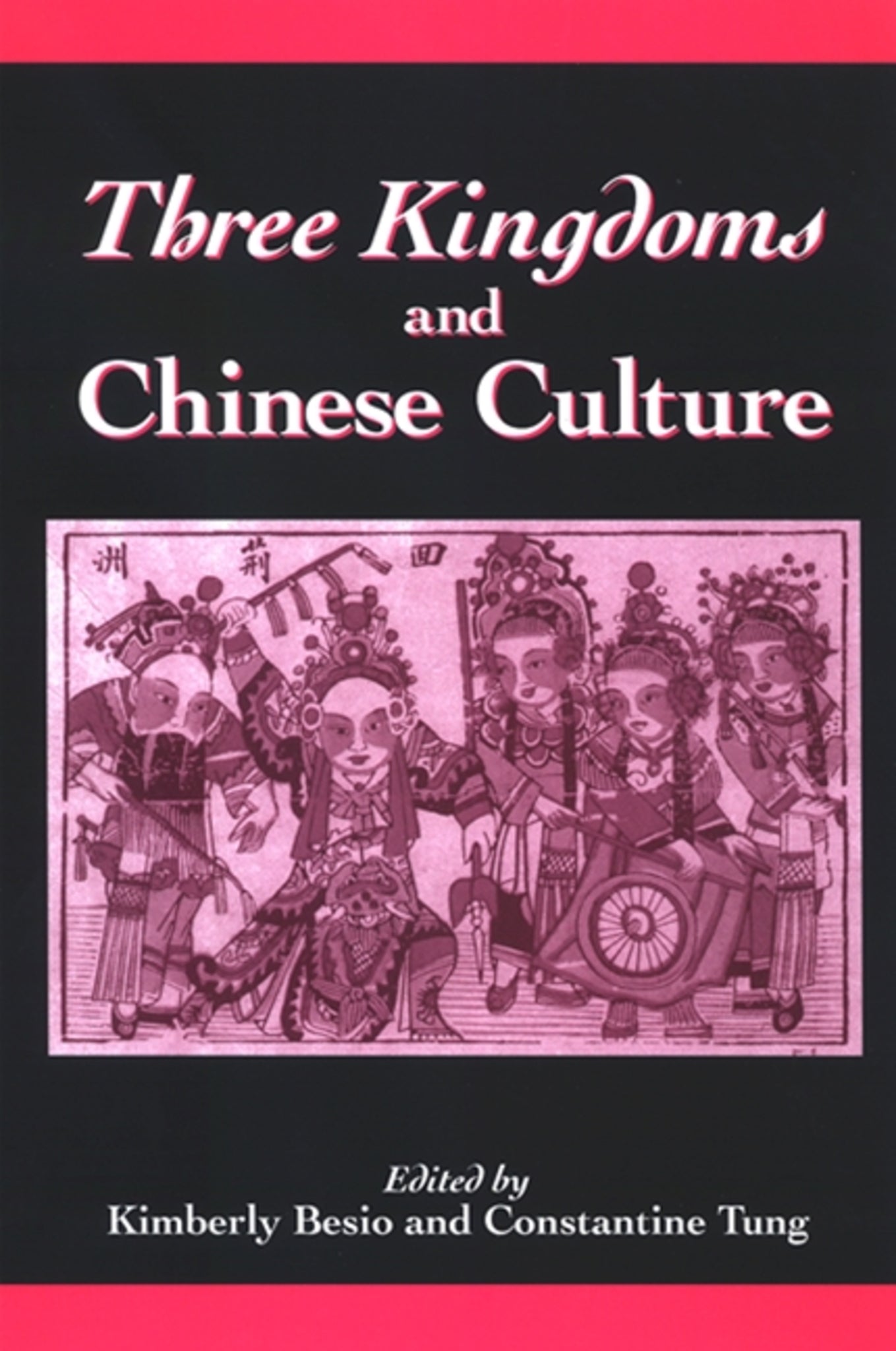We're sorry. An error has occurred
Please cancel or retry.
Three Kingdoms and Chinese Culture

Some error occured while loading the Quick View. Please close the Quick View and try reloading the page.
Couldn't load pickup availability
- Format:
-
03 January 2008

A multi-disciplinary exploration of China's first great classical novel, Three Kingdoms, and its influence on Chinese culture.
This is the first book-length treatment in English of Three Kingdoms (Sanguo yanyi), often regarded as China's first great classical novel. Set in the historical period of the disunion (220–280 AD), Three Kingdoms fuses history and popular tradition to create a sweeping epic of heroism and political ambition. The essays in this volume explore the multifarious connections between Three Kingdoms and Chinese culture from a variety of disciplines, including history, literature, philosophy, art history, theater, cultural studies, and communications, demonstrating the diversity of backgrounds against which this novel can be studied.
Some of the most memorable episodes and figures in Chinese literature appear within its pages, and Three Kingdoms has had a profound influence on personal, social, and political behavior, even language usage, in the daily life of people in China today. The novel has inspired countless works of theater and art, and, more recently, has been the source for movies and a television series. Long popular in other countries of East Asia, such as Japan, Korea, and Vietnam, Three Kingdoms has also been introduced to younger generations around the globe through a series of extremely popular computer games. This study helps create a better understanding of the work's unique place in Chinese culture.


"…the editors have done a good service with a well-edited volume, for which they should be congratulated." — Journal of Asian Studies
"…Three Kingdoms and Chinese Culture succeeds in living up to the promise of its title. The reader is given a wonderfully rich volume on the dramatic conflicts within the novel, its relationship with preceding historiography, its cultural manifestations in art, drama and performance arts in imperial times, and its fresh recreations in modern-day television drama, software games, and multimedia in China and East Asia. This book will be of great interest to anyone who wants to understand why modern Chinese venerate their ancient culture and how traditional values are interpreted and reinvented in contemporary contexts." — Bulletin of the School of Oriental and African Studies
"Three Kingdoms is one of the greatest novels in all Chinese literature. This volume addresses it from historical, philosophical, literary, theatrical, military tactical, and popular cultural perspectives and is a significant and useful companion to Moss Roberts' English translation of the novel." — Jan W. Walls, coeditor and cotranslator of Classical Chinese Myths
Foreword: The Language of Values in the Ming Novel Three Kingdoms
Moss Roberts
Acknowledgments
Introduction
Kimberly Besio and Constantine Tung
Part I Three Kingdoms and Chinese Values
1. Cosmic Foreordination and Human Commitment: The Tragic Volition in Three Kingdoms
Constantine Tung
2. Essential Regrets: The Structure of Tragic Consciousnessin in Three Kingdoms
Dominic Cheung
3. The Notion of Appropriateness (Yi) in Three Kingdoms
Jiyuan Yu
Part II Three Kingdoms and Chinese History
4. The Beginning of the End: The Fall of the Han and the Opening of Three Kingdoms
George A. Hayden
5. Selected Historical Sources for Three Kingdoms: Reflections from Sima Guang’s and Chen Liang’s Reconstructions of Kongming’s Story
Hoyt Cleveland Tillman
Part III Three Kingdoms in Chinese Drama and Art
6. Zhuge Liang and Zhang Fei: Bowang shao tun and Competing Masculine Ideals within the Development of the Three Kingdoms Story Cycle
Kimberly Besio
7. The Theme of Three Kingdoms in Chinese Popular Woodblock Prints
Catherine Pagani
8. Three Kingdoms at the Dawn of the Twenty-First Century: The Shanghai Jingju Company’s Cao Cao and Yang Xiu
Elizabeth Wichmann-Walczak
Part IV Three Kingdoms in Contemporary East Asia
9. From Three Kingdoms the Novel to Three Kingdoms the Television Series: Gains, Losses, and Implications
Junhao Hong
10. The Reception and Place of Three Kingdoms in South Korea
Jinhee Kim
11. Studies of Three Kingdoms in the New Century
Bojun Shen
Translated by Kimberly Besio
Bibliography
List of Contributors
Index



